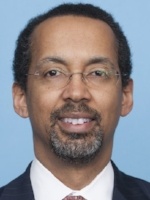Summary:
Jon V. Thomas, MD, MBA, CPE, a member of the Physician Leadership Journal editorial board, comments on the report in the May-June 2018 issue, Burning Brightly, Not Burning Out.
Physician wellness has a wide-ranging impact on the industry workforce, productivity and quality of care delivered.
Because of the rapidly evolving regulatory environment and changes in health care delivery at the local, state and national level, physicians are experiencing an onslaught of what many perceive as nonvalue-added regulatory mandates and activities, resulting in loss of autonomy, increased time pressure and diminished professional satisfaction. While we tend to view burnout as something relatively new, it likely tracks the evolution of health care from a cottage industry in the 1930s, where organized physicians wielded control, to the corporate health care system of today, where control resides increasingly within the leadership of the organization.
EXPERT'S PERSPECTIVE

The report: Burnout solutions targeted at the individual, leadership and organizational levels are not being widely used. Researchers spotlight some remediation options, and conclude that organizational efforts, combined with or supported by individual efforts, are most effective. Click here to read it.
On this page, Jon V. Thomas, MD, MBA, CPE, a member of the Physician Leadership Journal editorial board, comments on the report.
Burnout was first described in 1974, when Herbert J. Freudenberger pondered in the pages of the Journal of Social Issues, “Having experienced this feeling state of burnout myself, I began to ask myself a number of questions about it.” It wasn’t until 2011 that the first national study among U.S. physicians occurred and the authors argue that it has increased.
Burnout has a wide-ranging impact on the physician workforce, productivity and quality of care delivered. Intuitively, many physicians and leaders know what factors lead to burnout. However, policy and regulatory changes require data, not intuition, and the studies are starting to paint a clear picture of the causes. In the article, “Burning Brightly, Not Burning Out,” authors Klevos and Ezuddin describe the importance of taking a holistic approach to addressing burnout — not only is it important to provide the individual physician with strategies to decrease burnout, but there also must be support from leadership and the organization.
In Predictably Irrational, Daniel Ariely makes a distinction between social norms and market norms. Ariely, a behavioral economist, argues that social norms include empathy, helping, caring and communication. Market norms include productivity, prices and costs and benefits. “When a social norm collides with a market norm,” he says, “the social norm goes away for a long time. In other words, social relationships are not easy to reestablish.”
In health care today, social norms have increasingly taken a back seat to market norms. It is interesting to note that many of the successful interventions for burnout described by the authors were the restoration of what could be called social norms.
In conclusion, if physician burnout is not addressed, our aging population could suffer from this phenomenon as much as any of the other public health issues we are facing today.
Jon V. Thomas, MD, MBA, CPE, is a member of the Physician Leadership Journal editorial board. He is the managing partner of Ear, Nose & Throat Specialty Care in Minnesota.
Topics
Self-Awareness
Self-Control
People Management
Related
Panic Buying Pandemonium: The Bandwagon Effect and Healthcare ImplicationsHow Machine Learning Will Transform Supply Chain ManagementElectronic Pre-Navigated Patient Intake in Complex Patients: A Zero Net Win-WinRecommended Reading
Operations and Policy
Panic Buying Pandemonium: The Bandwagon Effect and Healthcare Implications
Operations and Policy
How Machine Learning Will Transform Supply Chain Management
Operations and Policy
Electronic Pre-Navigated Patient Intake in Complex Patients: A Zero Net Win-Win
Self-Management
Escaping the Tyranny of Academic Writing for the Narrative
Self-Management
Redesigning Retirement